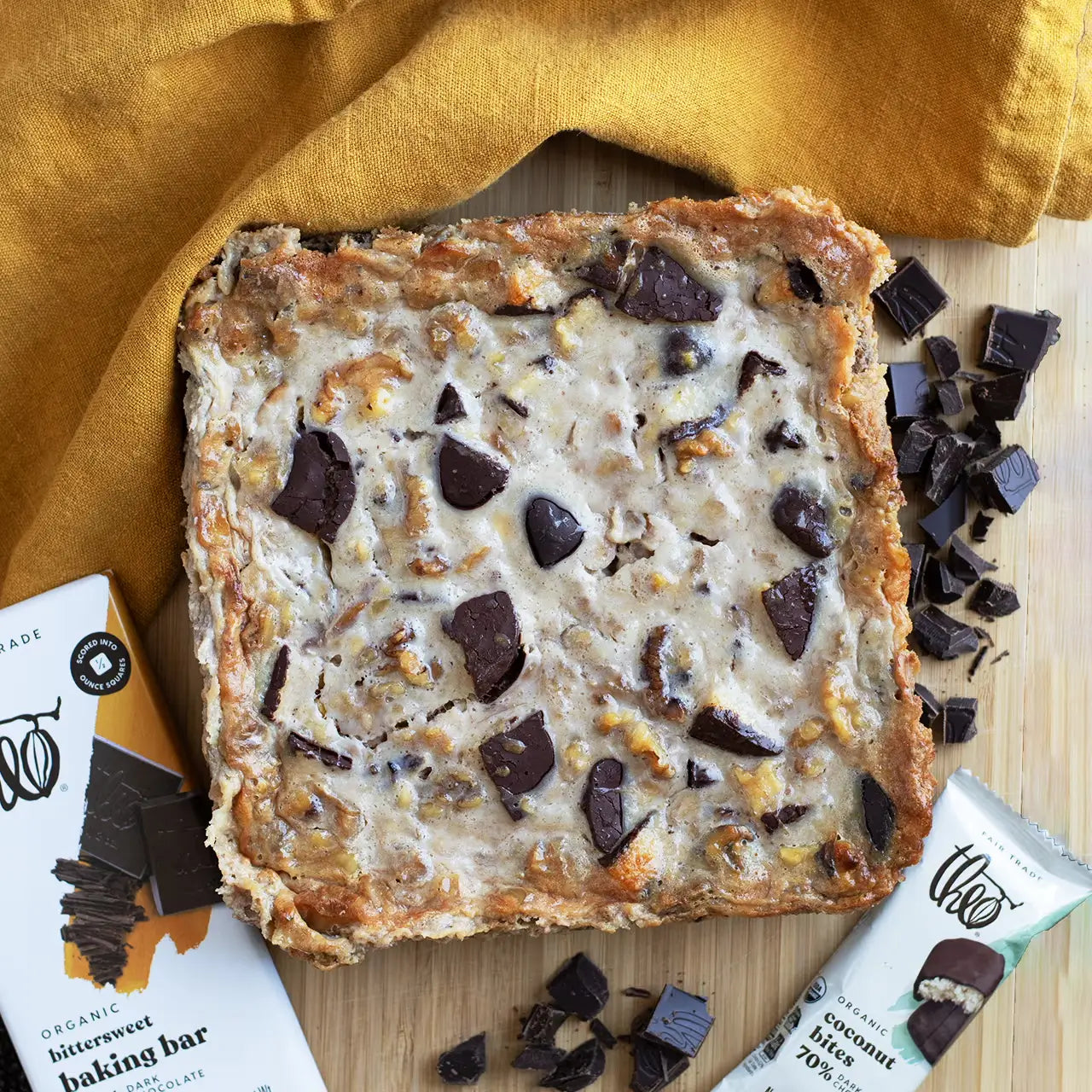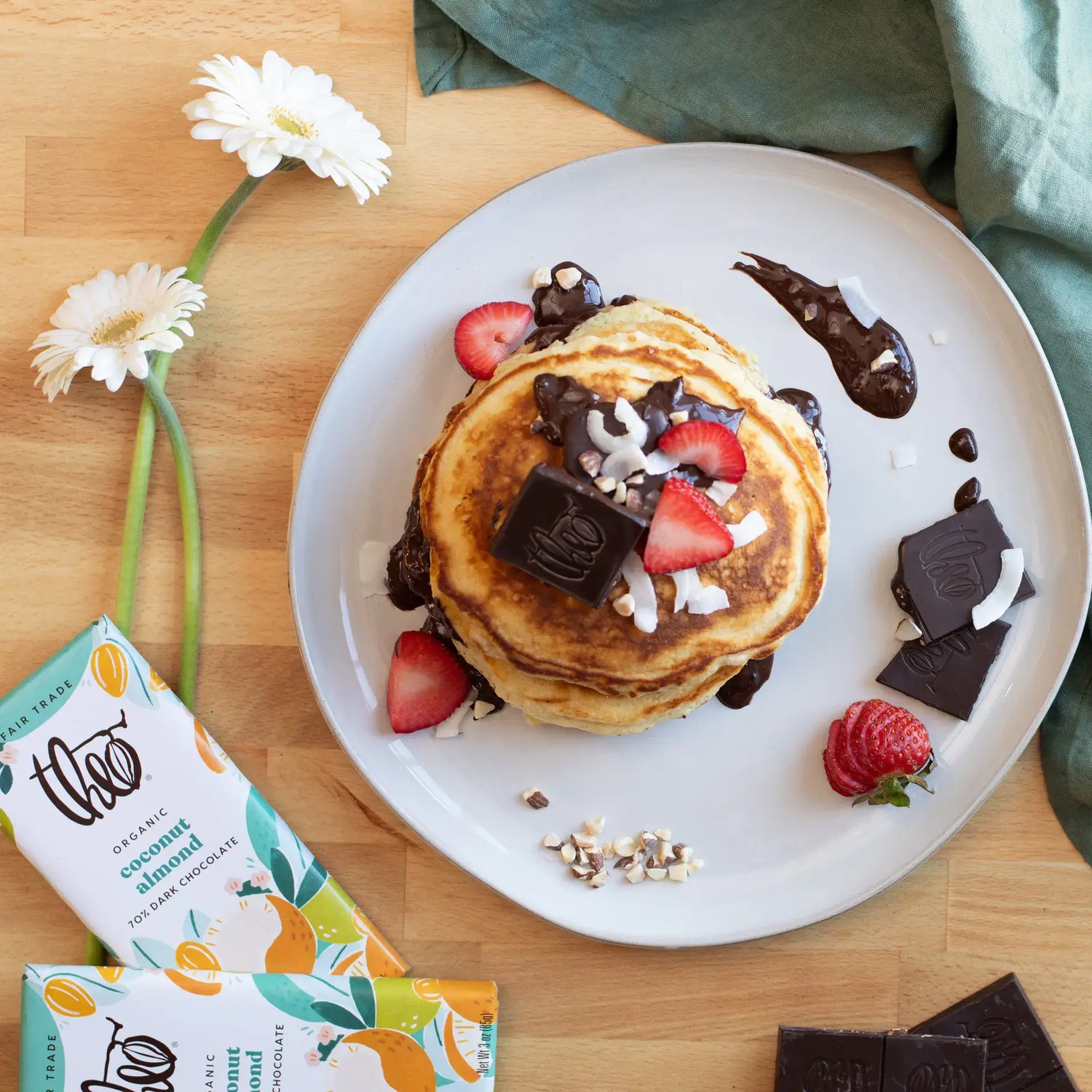Bees are fundamental to our food system and pollinate three-quarters of the 100 crops that make up the majority of the world’s food supply. In promote bee awareness, we have been sourcing honey from Survivor Bee for over six years. We sell their local and natural Washington honey in our Flagship Store, as well as feature it in our delicious handmade Honey Bee Confection Collection.
We love partnering with local companies, like Survivor Bee, because their mission of sustainability aligns so well with ours. We asked their founder, Bob Redmond, to do an interview so that we could bring more awareness on how closely connected we are to the survival of bees.
Photo Credit: Jovelle Tamayo
Q: Tell us about Survivor Bee and can you explain what, “We are the hive” means?
A: Survivor Bee is the result of 12 years of beekeeping and habitat restoration experience, and represents how our thinking has shifted along the way. While putting bees in backyards and supporting urban agriculture has its benefits, and even planting flowers (bee food) is valuable work, what we really need is to change the relationship between people and ecology. Bees can help us do that, but bees and even honey are not the goal. The goal is the relationship.
So, while Survivor Bee sells honey, we are also doubling down on education—about bee health, soil health, society health. We hosted a sold-out symposium at Town Hall on the microbiome, and will continue other programs on this topic and more. Later in 2021 we'll launch our holistic Beekeeping Lessons course, the curriculum of which includes geology, biology, plant literacy, Zen Buddhism, and relevant cultural engagements on diversity (and biodiversity), and much more.
"We are the hive" means that we—humans and bees, and all of nature—are inextricably connected. What we do to bees we do to ourselves; and how we related to each other affects the bees and gardens we all love.
Q: Why did you change the name of your company from Urban Bee to Survivor Bee?
A: Urban Bee Company started in the mid-2000's when beekeeping was just making a resurgence, having been mostly industrialized post WWII. Now there are more beekeepers than ever, and, contrary to common understanding, more honey bee hives than in decades. Pressure on honey bees remains, through pesticides, habitat loss, and disease, but the answer is much deeper than putting more hives in the city. In our opinion Seattle has enough bees and we need to change our approach to heal the relationship between people and ecology.
Survivor Bee represents not only the founder Bob's personal journey with cancer, but the resilience of nature to survive a few centuries of broken relationship with humans, particularly through the dominant, Western culture.
We will survive—together.
Q: What’s the one, most important thing you want people to know about the current bee problem?
A: Bees—honey bees and more so, wild bees (the 25,000 other species of bees)—show us everything that's challenging about our relationship with nature. What they eat, we eat. What helps them thrive, helps us thrive. The most important thing is to understand that the hive, ultimately, is us. We're all related and our survival is interdependent.
Photo Credit: Jovelle Tamayo
Q: What are some of the common misconceptions about bees and urban beekeeping?
A: Here's another chance to sound like a curmudgeon, but here it is: beekeeping is glamorous, slightly risky, slightly sexy, and often literally delicious. It's a high-end endeavor, though, taking fantastic amounts of resources: it takes the nectar from 2 million flower blossoms, collected by the bee tongue-ful, to make one pound of honey. The misconception is this: it seems automatic, even easy (plant flowers, get honey!) but the bees foraging area is three miles radius from their hive, which makes 28 square miles, or 18,000 acres—a fabulous reach. So, if you're thinking of keeping a beehive, don't think of keeping chickens as an analogue, think of keeping horses... lots of acreage, lots of food, lots of needs. An expensive endeavor.
Q: How do you know if your property is a good fit for bees?
A: First, look at the green space three miles in every direction around your location: are there a lot of blooming flowers in succession from March through September? The other main thing bees need is sunshine and a well-drained area for the hives. i.e. shady, cold, and damp will not work.
Q: How can I support bees if I live in an apartment or can’t have a hive on my property?
A: Anyone can plant flowers in a flower box or parking strip, or talk to property managers about improving pollinator forage and habitat (including some native grasses with a little open soil around where wild bees can nest). Also, it might not be obvious, but participating in a community garden, getting involved in a pesticide-free campaign, learning about native herbs and medicines, or helping black and tribal farmers regain access to land—all these things help the bees.
Q: What are the best plants to grow that support the health of bees? What other resources do bees need to thrive?
A: The best plants as a rule are plants native to your specific locality. A good source for creating a plant list is the Xerces Society. Some of my personal favorites for Burien are: lupine, echinecea, phacelia, elderberry and kinnikinnick.
Q: What organizations or products do you suggest, if I am interested in helping address the bee problem and habitat restoration?
A: The Xerces Society, The Common Acre, Northwest Meadowscapes, Black Farmers Collective, Real Rent Duwamish and Dirt Corps are some organizations doing excellent work for bees and land justice.
Q: Does buying organic foods and products have an impact on bees?
A: Yes, and even better, buying food directly from farms through CSAs and markets helps break down the industrial complex around food. Growing your own, and working with neighbors to grow and share your own is even more rewarding!
Survivor Bee is a local Washington company dedicated to improving the health of bees through community education.




